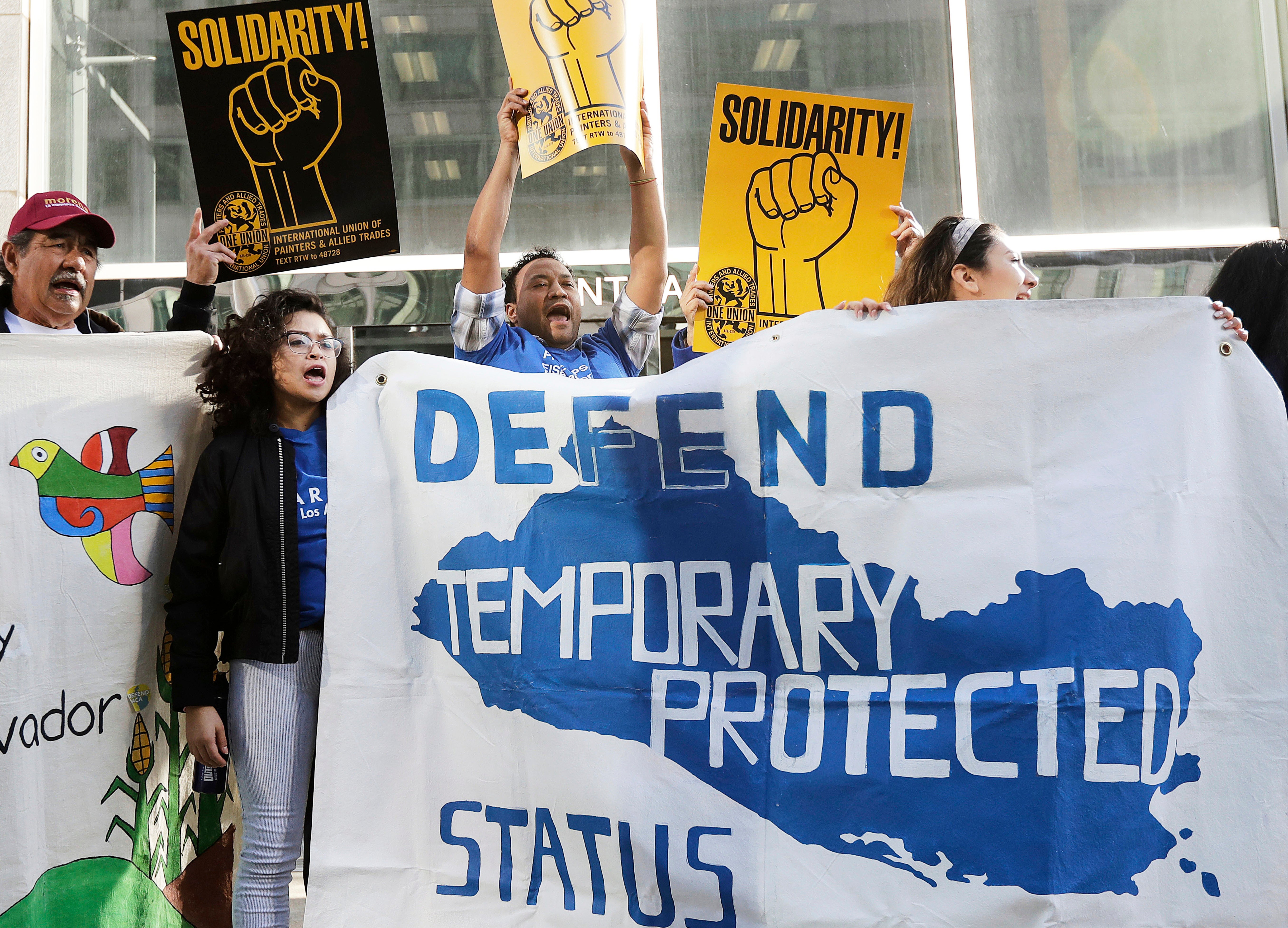A federal judge in California has temporarily blocked Donald Trump’s administration from revoking deportation protections for tens of thousands of immigrants from Honduras, Nepal and Nicaragua.
A searing 37-page ruling argued that a decision by Homeland Security Secretary Kristi Noem to cancel those temporary humanitarian protections appeared partially rooted in “racial and discriminatory animus.”
“Color is neither a poison nor a crime,” stated the ruling from District Judge Trina Thompson, who was appointed by former President Joe Biden.
Her decision is a reprieve for more than 60,000 immigrants who were allowed to legally live and work in the United States under the Temporary Protected Status program. Immigrants from Nepal who are enrolled in the program were set to lose their status August 5, and TPS was set to expire for Honduras and Nicaragua in September.
Thursday’s decision postpones those deadlines until at least November 18 as the legal challenge continues.

In her decision, Thompson listed a series of statements from Noem and the president amplifying “the discriminatory belief that certain immigrant populations will replace the white population.”
“By stereotyping the TPS program and immigrants as invaders that are criminal, and by highlighting the need for migration management, Secretary Noem’s statements perpetuate the discriminatory belief that certain immigrant populations will replace the white population,” Thompson wrote.
In several lawsuits, immigrants’ advocacy groups and TPS holders have argued that the Trump administration explicitly relied on false and discriminatory stereotypes — including the president’s claims that foreign prisons were emptying out jails to send criminals to the U.S., and that immigrants are “poisoning the blood” of the country — to justify the end of the program.
“The freedom to live fearlessly, the opportunity of liberty, and the American dream. That is all Plaintiffs seek,” Thompson wrote in her ruling. “Instead, they are told to atone for their race, leave because of their names, and purify their blood. The Court disagrees.”
The Independent has requested comment from Homeland Security.

Congress created the program in 1990 to provide temporary immigration protections for people fleeing war, natural disasters and “extraordinary and temporary” conditions in their home countries. Beneficiaries are allowed to apply for renewable work permits and protections against deportation.
To carry out its plans for mass deportations, the administration has pushed to “de-legalize” tens of thousands of immigrants who were granted humanitarian protections to legally live and work in the U.S.
In February, Noem announced the administration was ending TPS designations for Cuba, Haiti, Nicaragua and Venezuela.
In May, the Supreme Court allowed the Trump administration to cancel TPS for roughly 350,000 Venezuelans while legal challenges continue. In a separate ruling, the nation’s highest court paved the way for the administration to revoke TPS for another 532,000 immigrants from Cuba, Haiti, Nicaragua and Venezuela.
Taken together, the rulings gave Trump permission to begin stripping legal status for nearly 900,000 people who are now vulnerable to deportation.
Noem’s past statements reflect her “animus against immigrants and the TPS program even though individuals with TPS hold lawful status — a protected status that was expressly conferred by Congress with the purpose of providing humanitarian relief,” Judge Thompson wrote.
“Their presence is not a crime,” the judge added. “Rather, TPS holders already live in the United States and have contributed billions to the economy by legally working in jobs, paying taxes, and paying contributions into Medicare and Social Security.”
Thompson is at least the second judge to directly suggest that Noem’s decision-making was rooted in racism.
In March, California District Judge Edward Chen said the Trump administration’s “generalization of criminality to the Venezuelan TPS population as a whole is baseless and smacks of racism predicated on generalized false stereotypes.”
Arguments from the Trump administration defending the move, including claims that TPS holders are members of the gang Tren de Aragua, are “entirely lacking in evidentiary support,” Chen wrote.
Instead, the move to cancel those protections appears “predicated on negative stereotypes casting class-wide aspersions on their character,” including “insinuating they were released from Venezuelan prisons and mental health facilities and imposed huge financial burdens on local communities,” according to the judge.



